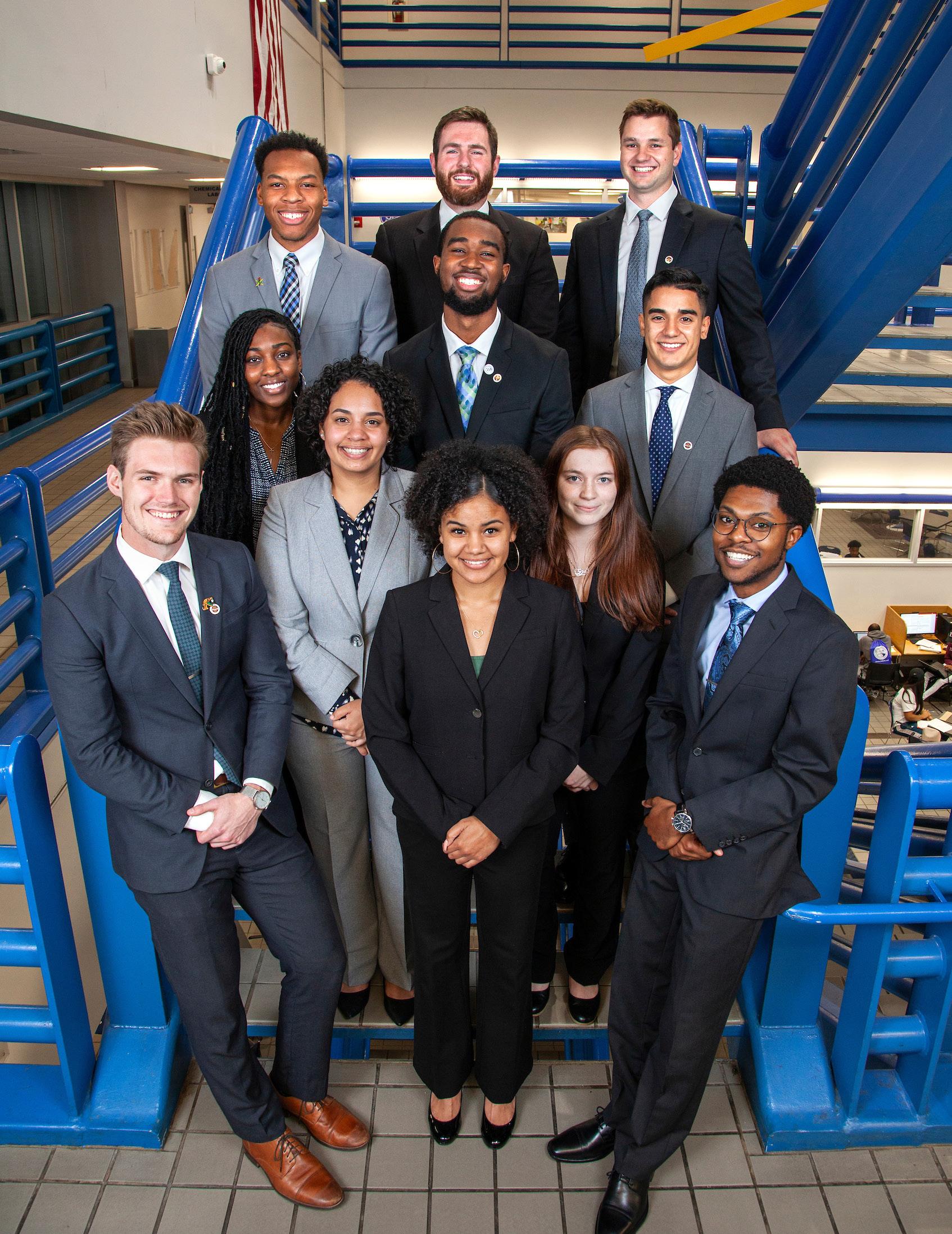
3 minute read
Professor honored as Fellow of the Cryogenic Society of America
A FAMU-FSU COLLEGE OF ENGINEERING PROFESSOR recognized in cryogenics has been selected as a Fellow from the Cryogenics Society of America.
Sastry Pamidi is the chair and professor of electrical and computer engineering and the associate director for the Center for Advanced Power Systems (CAPS). Pamidi received the award during the virtual joint 23rd Cryogenic Engineering Conference and International Cryogenic Materials Conference, held in July 2021.
“Professor Pamidi is a leader in the field of superconducting cables and cryogenic technology related to superconducting power devices,” said Dean Murray Gibson. “It is a pleasure to see him recognized by his colleagues.”
The Cryogenic Society of America Fellowship is bestowed on persons who have made notable contributions of significant magnitude to the field of cryogenics. The distinction is awarded to one or two persons every other year.
“It is a distinct honor to be elected as a Fellow of the Cryogenic Society of America,” Pamidi said. “I am pleased to join the distinguished group of CSA Fellows. The CSA is the professional organization for cryogenic engineers in all areas of the field, and I am proud that my contributions to the field of cryogenics are acknowledged by my peers.”
Pamidi has been working on the development of superconducting devices and related cryogenic technologies since 2000 and has published more than 190 peer-reviewed papers. He leads a multidisciplinary research group at CAPS and has worked
in research laboratories in Asia, Europe and the United States. He collaborates with many research groups worldwide.
“Dr. Pamidi’s research contributions and personal qualities are fitting with the status of a Fellow,” said Lance Cooley, a professor in mechanical engineering and the director of the Applied Superconductivity Center. “His warmth and friendliness have been essential to keep collaborations together and maintain esprit de corps during difficult project stretches.”
Pamidi and his team have been developing high-temperature superconducting devices by integrating cryogenic, superconducting and high voltage engineering technologies.
— ROGER MCGINNIS, DIRECTOR OF CAPS
“Professor Pamidi has made substantial contributions in the area of cryogenics and has advanced our understanding in superconducting technologies that are far-reaching,” Roger McGinnis, director of CAPS, said. “He takes great pride in mentoring our students, and our students greatly appreciate his kindness, mentorship and teaching.”
Chul Kim and Peter Cheetham, faculty researchers at CAPS and members of Pamidi’s team, expressed a sentiment similar to McGinnis’.
“Professor Pamidi being recognized as a CSA fellow demonstrates the significant and long-lasting impact his research has had on the cryogenic community,” Cheetham said. “The recognition gives us the opportunity to show our appreciation and thank him for the work he does at both the FAMU-FSU College of Engineering and the Center for Advanced Power Systems to train and mentor the next generation of engineers.”
“Our team has greatly benefited from Professor Pamidi’s broad knowledge and passionate energy. His enthusiasm in research and teaching has a positive influence on everyone.” Kim said.
“Being honored as Fellow for the CSA is a recognition of not only my contributions but also of my past and current team members and my students who made significant contributions to advancing cryogenic technology for superconducting power devices,” Pamidi said.
Matthew Sze (in red with back to the camera) with Omicron, conducted a site visit to the high voltage lab at CAPS to demonstrate partial discharge measurements for power devices to graduate and undergraduate students enrolled in Dr. Sastry Pamidi’s Instrumentation and Measurement class. (Photo: M Wallheiser)
“We want to leverage the strengths of partnering institutions with established research connections, recruiting and training academically-talented minority students from Kindergarten through college, using a variety of activities in outreach, education

and research.” — ASSOCIATE PROFESSOR SHONDA BERNADIN










